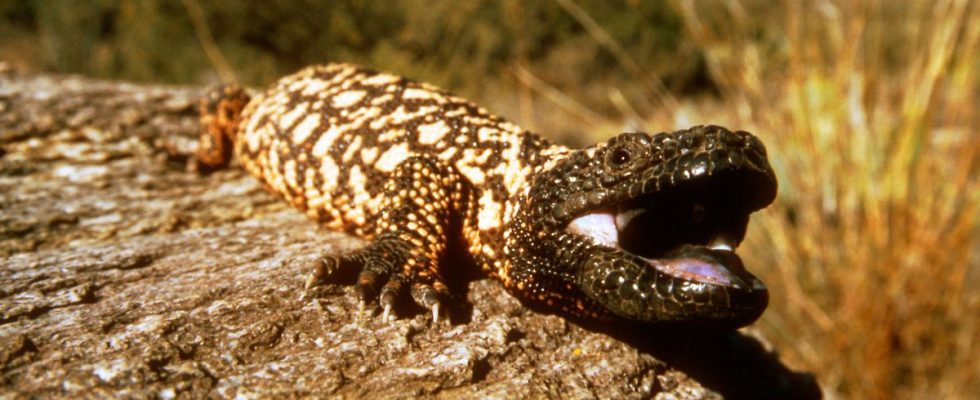34-year-old had two copies
Man dies after being bitten by Gila lizard
February 22, 2024, 10:05 a.m
Listen to article
This audio version was artificially generated. More info | Send feedback
In the US state of Colorado, a 34-year-old keeps two Gila lizards as pets. When one of the reptiles bit into his hand, his passion for reptiles became his undoing.
A Colorado man has died after being bitten by a poisonous lizard he kept as a pet. The responsible forensic medicine department initially did not want to confirm whether the poison of the so-called Gila crusted lizard was actually the cause of death. If so, it would be one of very few known deaths in the United States caused by the poisonous desert creatures.
The dead man was a 34-year-old man who had been keeping two Gila lizards as pets since last fall. His girlfriend turned the reptiles over to authorities the day after the bite, along with 26 spiders of various species that were also kept at the Lakewood home.
The friend said that one of the two lizards – her name is Winston – had bitten on the 34-year-old’s hand. Soon after the bite on February 12, the man vomited and eventually became unconscious, she told animal control officials. A few days later he was declared brain dead and finally died last Friday, a police spokesman said on Tuesday (local time).
Bites rarely fatal
Gila lizards have their natural habitat in the southwestern United States and neighboring Mexico. Their bites cause great pain and can cause those bitten to lose consciousness. But they are usually not fatal.
A bite feels “like having your hand caught in a car door,” said reptile researcher Dale DeNardo of Arizona State University. “The initial pain lasts for an hour.” Afterwards you feel a throbbing pain for days. “This is much worse than a bee, a wasp or a scorpion,” says DeNardo. Even he doesn’t want to have such an animal in his house.
The keeping of Gila crusted lizards is regulated differently in the USA. In some states such as Maine and Kentucky, keeping them is prohibited. Other states require a permit – or do not impose any regulations on owners.

